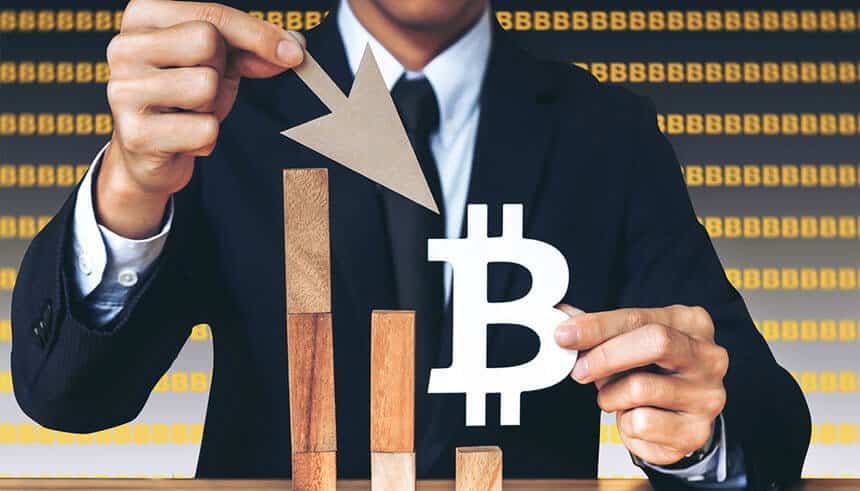Since the Supreme Court of India overturned the Reserve Bank of India (RBI) ban on cryptocurrency payments in March, the cryptocurrency market in India has seen a surge in activity. However, this growth has been marred by the rise of fake cryptocurrency wallet scams, leaving unsuspecting investors with significant financial losses.
Indian businessman Manan Shah, CEO and Founder of Avalance Global Solutions, has highlighted the growing threat of these scams, revealing incidents where investors have lost amounts ranging from Rs. 37 lakh to Rs. 28 crore.
The Growing Popularity of Cryptocurrencies in India
Post-Ban Surge in Investment
The Supreme Court’s decision to overturn the RBI ban unlocked new opportunities for Indian investors in the cryptocurrency market. Cryptocurrencies like Bitcoin have become highly sought after, with a single Bitcoin valued at approximately Rs. 8 lakh in India. Enthusiastic investors have been eager to participate in this burgeoning financial trend.
Vulnerability to Scams
However, the rapid growth of cryptocurrency investments has also exposed a lack of awareness and education among many investors, making them easy targets for fraudulent schemes like fake cryptocurrency wallets.
The Modus Operandi of Fake Cryptocurrency Wallets
How the Scams Work
Fake cryptocurrency wallets use deceptive tactics to lure victims:
- Social Media Targeting: Scammers send enticing messages via social media groups, promising easy Bitcoin trades.
- Fake Trading Platforms: Victims are encouraged to buy Bitcoin through these fraudulent apps and are promised trade opportunities with users worldwide.
- Unresponsive Platforms: Once funds are deposited, victims find themselves unable to withdraw money or trade on the platform.
Platforms Implicated
Manan Shah has identified platforms like Swift Global Pay (SGP), Insta Global Pay (IGP), and International Global Pay as common culprits in these scams.
High-Profile Cases of Financial Losses
Losses of Rs. 37 Lakh and Rs. 28 Crore
Manan Shah recounted cases of significant financial losses:
- One businessman lost Rs. 37 lakh while transacting on a fake cryptocurrency platform.
- Another case involved a businessman losing Rs. 28 crore, highlighting the scale and sophistication of these scams.
User Complaints Against SGP
A user named Kumar Chvks, Managing Director of an Indian firm, shared his experience with Swift Global Pay (SGP):
- He purchased virtual cards worth Rs. 3.7 lakh but found them unusable.
- Despite attempts to withdraw funds via BTC, PayPal, and bank transfers, no money was returned.
- He estimates the total scam value to be around Rs. 7,000 crore.
Why Fake Wallet Scams Thrive
Lack of Regulation
The absence of robust regulatory oversight in India’s cryptocurrency market allows fraudulent platforms to operate with impunity. Investors often lack the tools to verify the authenticity of these wallets.
Low Awareness Among Investors
Many investors, especially newcomers, are unfamiliar with the intricacies of cryptocurrency trading and the risks involved. Scammers exploit this lack of knowledge to their advantage.
Protecting Yourself from Cryptocurrency Scams
Red Flags to Watch For
- Unsolicited Messages: Be wary of offers or messages from unknown sources promoting cryptocurrency trades.
- Unverifiable Platforms: Avoid platforms without a clear history, reviews, or regulatory backing.
- Unrealistic Promises: Scammers often promise guaranteed returns or exaggerated profits, which should raise suspicion.
Best Practices
- Use Reputable Wallets: Stick to well-known and established cryptocurrency wallets with a proven track record.
- Research Thoroughly: Before investing, research the platform’s credibility, user reviews, and regulatory compliance.
- Enable Security Measures: Use multi-factor authentication and strong passwords to secure your accounts.
- Consult Experts: Seek advice from cryptocurrency professionals or financial advisors before making large investments.
The Role of Authorities and Industry Experts
Manan Shah’s Warning
Manan Shah has called for greater awareness and caution among Indian investors, emphasizing the need to thoroughly vet cryptocurrency platforms before engaging with them.
The Need for Regulation
India’s cryptocurrency market requires clear and enforceable regulations to protect investors and curb fraudulent activities. Regulatory frameworks can mandate due diligence, transparency, and accountability for platforms operating in the crypto space.
Conclusion
The rise of fake cryptocurrency wallets in India underscores the darker side of the country’s burgeoning interest in digital assets. While cryptocurrencies like Bitcoin offer immense potential for growth and financial innovation, they also present risks that can devastate unsuspecting investors.
By staying informed and adopting best practices, investors can protect themselves from falling prey to scams. At the same time, stronger regulatory measures and industry oversight are critical to creating a safer environment for cryptocurrency trading in India.
As the market continues to evolve, awareness, education, and vigilance will remain the keys to navigating the challenges of cryptocurrency investment.
To learn more about the innovative startups shaping the future of the crypto industry, explore our article on latest news, where we delve into the most promising ventures and their potential to disrupt traditional industries.
Disclaimer: The information provided is not trading advice, Bitcoinworld.co.in holds no liability for any investments made based on the information provided on this page. We strongly recommend independent research and/or consultation with a qualified professional before making any investment decisions.

